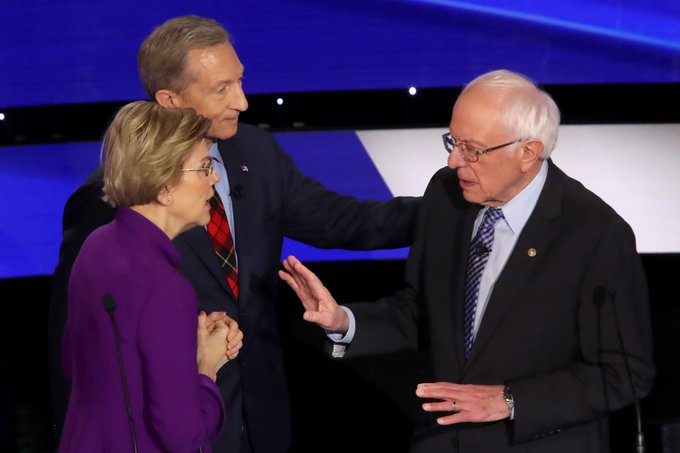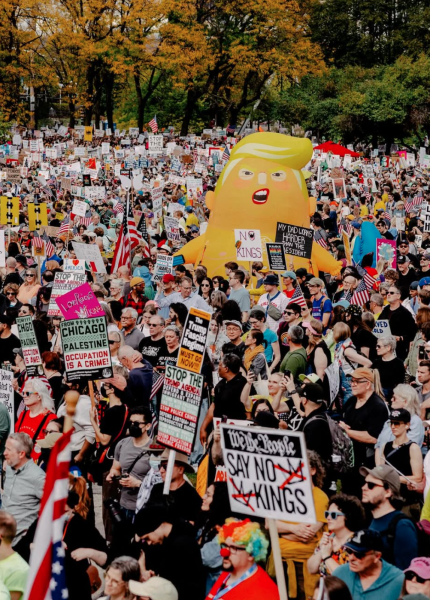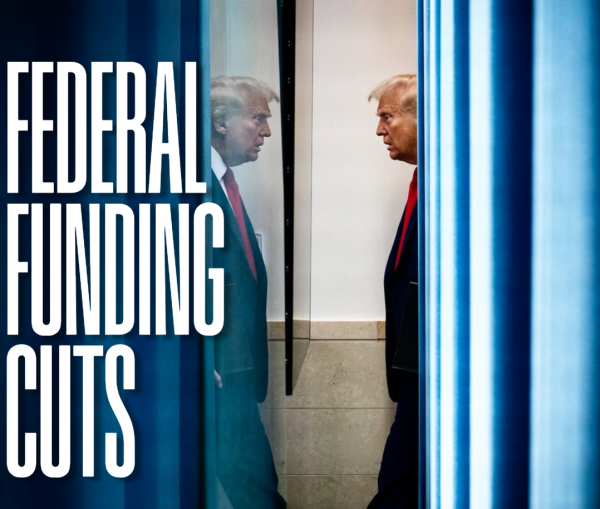Debate Debacle Erodes Trust in Media
On Jan. 14, six candidates took the stage in Des Moines, Iowa, in what may be seen by many as the worst 2020 Democratic primary debate thus far. For many of the candidates, the night was neither terrifically good nor bad. However, looming over all proceeding was the conflict between senators Elizabeth Warren and Bernie Sanders over whether the latter had said that a woman could not win the presidency.
For many, it is hard to believe that someone who is accepted by most as among the most progressive politicians in the country could make such a callously sexist statement in private then proceed to lie about it. As Sanders referenced in the debate, videos from the late 1980s have surfaced, which depict him as opposed to sexism in politics. In everything from meeting with children to C-Span interviews, Sanders repeatedly stated a woman could be elected president. Moreover, the senator even suggested Warren specifically run for this highest office as early as 2013.
Most likely, Sanders may have noted in their conversation that sexism still exists in America, a sentiment echoed in his recent interview with NHPR, and that president Donald Trump will readily stoop to sexist attacks if his opponent is a woman in November. Though this argument is debatable, it is hardly as scandalous as the charge against Sanders.
Being generous to both candidates, one can easily speculate that something like this was expressed during the meeting in question. Perhaps, Warren interpreted the comments more negatively than had been intended and passed on an exaggerated version of Sanders’ statement. Seeing that Warren had settled into third place nationally at a crucial time in the campaign, perhaps these staffers decided to publicize the story on the eve of the final pre-Iowa debate. They might have done this without Warren’s knowledge, but it seems the Warren camp has stuck to this tactic in a bid to regain traction.
New polling seems to suggest that the voting public agrees that Warren has been somewhat calculated and disingenuous in this saga, with the Real Clear Politics aggregate showing a bump for Sanders and a dip for Warren since the debate. Though this has shaken my own trust in Warren, she remains strong on the policies and is second in my mind only to Sanders himself. But while this incident may have dealt a blow to Warren’s credibility, it has above all revealed a troubling lapse in the integrity of CNN and the broader media.
In its handling of this spat, CNN has acted more like a tabloid than a reputable news organization. It is plainly evident that CNN pushed the story heavily in the lead up to the debate to build interest and bring negative attention to Sanders. Undoubtedly, its moderators asked questions in a way that might illicit drama between Sanders and Warren.
CNN’s bias was particularly clear in its framing of debate questions, beyond just the sexism allegation. Sanders’ foreign policy was likened with that of Iran’s Ayatollah Khamenei. Later, it was suggested that Sanders’ programs might “bankrupt the country.” On the USMCA trade deal, Senator Warren was not asked why she supported it, but rather why Sanders specifically was wrong to oppose it, in a bold-faced ploy to sow further discord between the two.
As for the original accusation, Sanders was asked if he had ever said a woman could not win the presidency. He categorically stated that he did not. Moderator Abby Phillip immediately turned to Warren, not to ask her whether or not Sanders had made the comment, but instead to ask her what her reaction was when he said it, at which the audience rightly laughed.
Bias was also plain to see in the debate’s immediate aftermath. During CNN’s post-debate panel, commentator Jess McIntosh argued that Sanders’ denial was insufficient because the story was “not a ‘he-said-she-said’” situation and had been officially “reported out.” This remark was tepidly corrected by Anderson Cooper, who pointed out that it was in fact the epitome of a “he-said-she-said,” as all four sources cited in their report ultimately lead back to Warren alone. Two days after the Iowa debate, CNN’s Chris Cillizza wrote an article literally titled “Why we shouldn’t stop talking about the Sanders-Warren fight.” Cillizza claims he is earnestly seeking the truth of the matter, but the appearance of trying to draw out the controversy further is hard to shake.
These shenanigans are not reserved to CNN alone, though as the moderators of the debate they had the most to benefit from stirring controversy. A number of major outlets including, The New York Times and The Washington Post, have described the conflict as one over whether a woman can be president. On its face, this seems an innocuous description, but it implies that someone is arguing against a female president, when in fact, all parties involved claim to believe a woman can hold that office.
Perhaps the most singularly egregious example of media bias following the debate came not from CNN but from MSNBC, where body language expert Janine Driver appeared on Joy-Ann Reid’s show to analyze the unfriendly exchange between Warren and Sanders at the end of the debate. Driver declared Sanders a liar based on his slouched shoulders and his “cold shoulder” toward Warren, despite the fact that Sanders has iconically poor posture and offered Warren a handshake upon her approach. Giving a platform to someone whose arguments fall flat and presenting them as an arbiter of the truth is journalistic malpractice.
All this being said, none of these organizations are a monolith. On MSNBC’s Morning Joe, the general consensus seemed to be that the accusation against Sanders was unbelievable. Even on CNN, host Erin Burnett asserted that the initial story was a plant by Warren or her staff. While these are some refreshing exceptions, much of the coverage on the Sanders-Warren fight has been disappointing.
More than anything, this debate and the media circus surrounding it should be a reminder that media cannot and should not put issues, substance, and policy to the wayside while promoting drama for the sake of views. Nor should they expect their audience to accept their claims of objectivity when engaging in reporting, which is obtusely uncharitable toward certain candidates. If CNN and other mainstream outlets want to peddle in biased narratives and scandalize viewers in the hopes they come back for more, then they do a disservice to their profession, to voters and to discourse in this country.
Kyle Chin, FCRH ’21, is a political science major from Malverne, New York.








































































































































































































